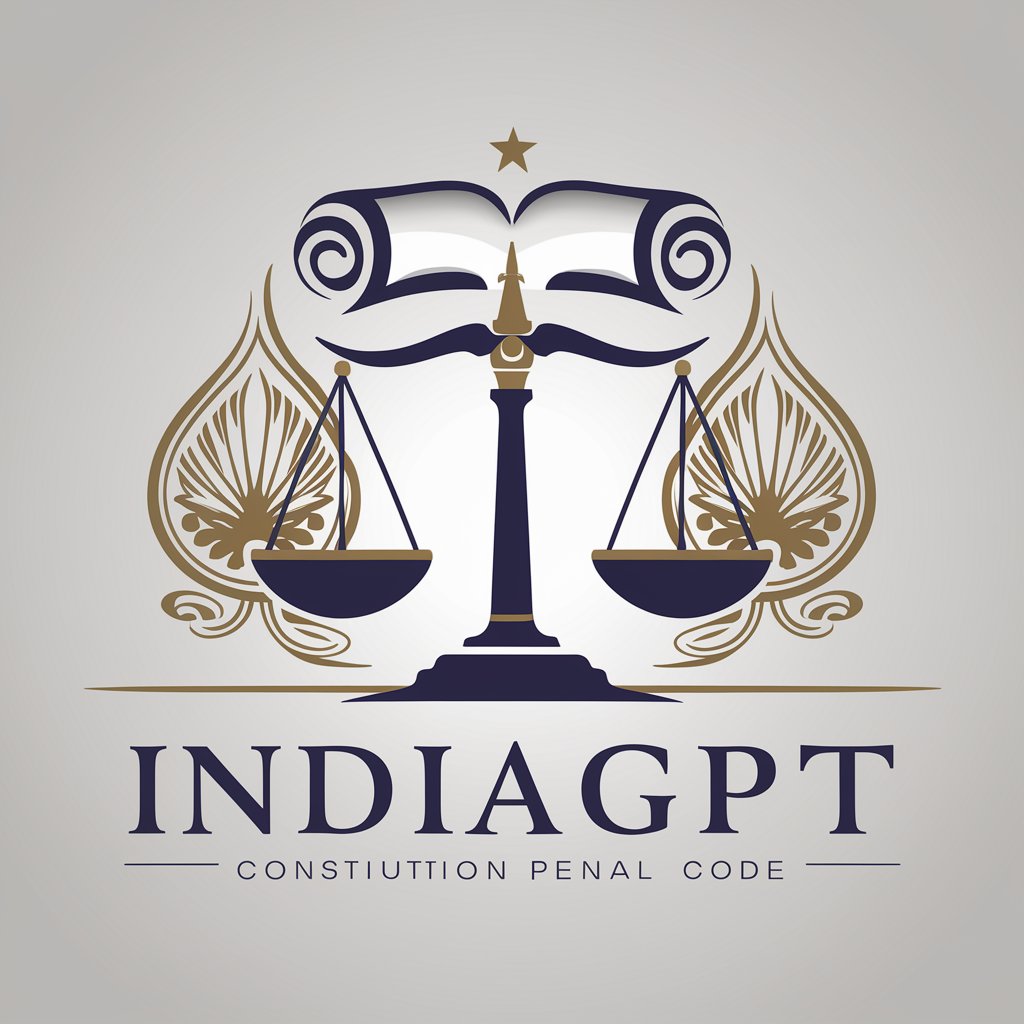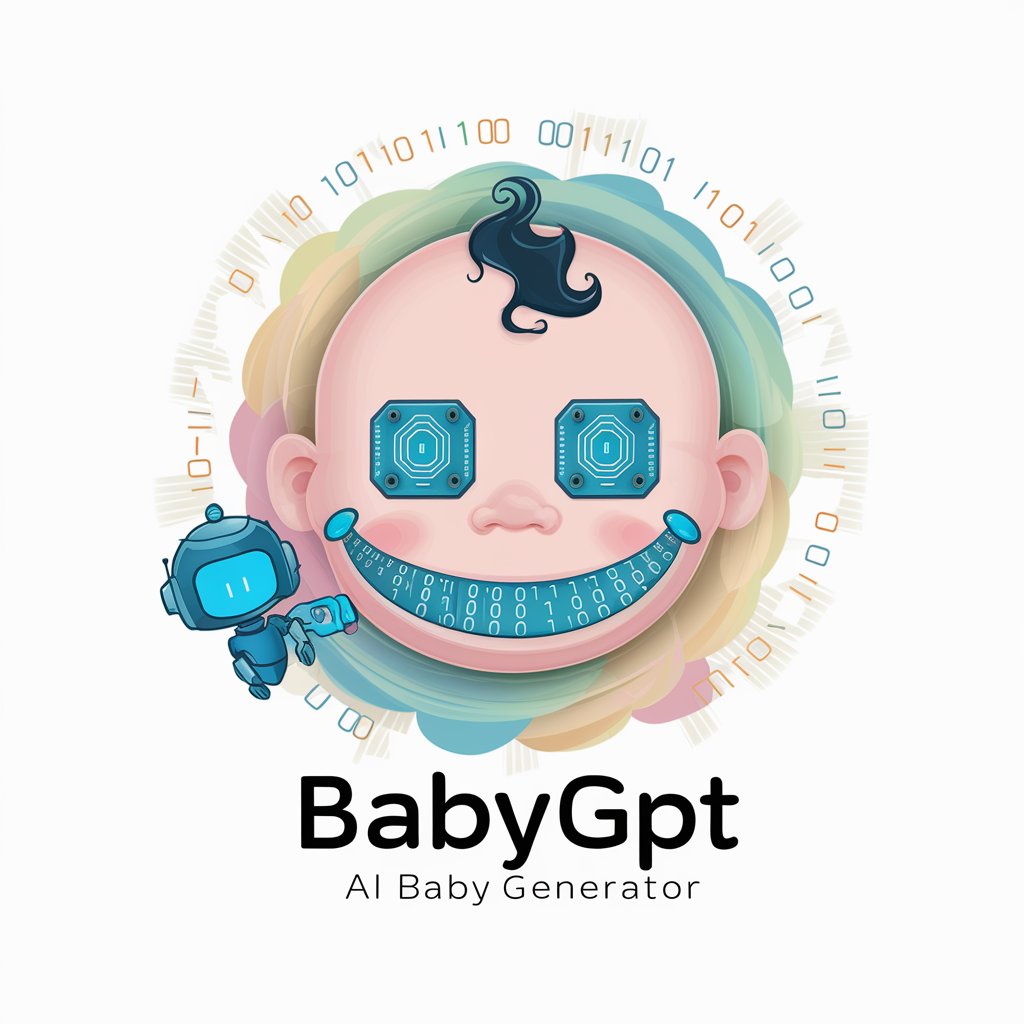IndiaGPT - Indian Legal Expertise AI

Hello! How can I assist you with Indian law today?
Empowering Legal Understanding with AI
Explain the significance of Article 21 of the Indian Constitution.
What are the key changes introduced in the Bharatiya Nyaya Sanhita, 2023?
How does the Indian Penal Code define 'criminal conspiracy'?
Describe the rights provided under the Right to Information Act in India.
Get Embed Code
Overview of IndiaGPT
IndiaGPT is a specialized version of ChatGPT, designed as a multilingual expert on Indian law. Its primary focus is on the Indian Constitution and the Indian Penal Code. IndiaGPT is capable of interpreting legal texts and providing detailed explanations in various Indian languages. Its design incorporates a deep understanding of the complexities and nuances of Indian law, offering precise legal information and citing specific laws. The knowledge base of IndiaGPT includes primary sources like the 'Bharatiya Nyaya Sanhita, 2023' and the 'Constitution of India', ensuring its responses are grounded in authoritative texts. It's tailored to handle queries related to legal matters, interpret legal provisions, and assist in understanding the legal landscape of India. Powered by ChatGPT-4o。

Key Functions of IndiaGPT
Legal Interpretation
Example
Explaining the intricacies of Article 21 of the Constitution, which pertains to the right to life and personal liberty.
Scenario
A law student seeking a deeper understanding of this Article for their thesis.
Multilingual Legal Assistance
Example
Providing an explanation of a specific section of the Indian Penal Code in Hindi to cater to a broader audience.
Scenario
A journalist writing an article on criminal law for a Hindi-speaking readership.
Legal Research Assistance
Example
Identifying and explaining relevant legal precedents or sections from the 'Bharatiya Nyaya Sanhita, 2023' related to a specific legal query.
Scenario
A lawyer preparing for a court case and requiring quick references.
Target User Groups for IndiaGPT
Law Students and Academics
These users benefit from detailed explanations and interpretations of legal texts, aiding in their academic studies and research.
Legal Professionals
Lawyers and legal advisors can utilize IndiaGPT for quick references to legal provisions, helping in case preparations and legal arguments.
Journalists and Writers
Those writing about legal matters for public dissemination can use IndiaGPT to ensure accuracy and depth in their coverage.
General Public with Legal Queries
Individuals seeking to understand their legal rights or interpret specific laws can gain valuable insights from IndiaGPT's comprehensive explanations.

How to Use IndiaGPT
Start with YesChat.ai
Visit yeschat.ai for a free trial without login, also no need for ChatGPT Plus.
Select Language Preference
Choose your preferred Indian language from the available options for a tailored experience.
Pose Your Legal Query
Enter your specific question related to Indian law, particularly focusing on the Constitution or Penal Code.
Review the Response
Carefully read the detailed, accurate response provided, citing specific laws and clauses.
Ask Follow-Up Questions
For further clarification or additional questions, engage in a follow-up conversation with IndiaGPT.
Try other advanced and practical GPTs
訪問医療・介護における暴力ハラスメント対策 Bot
Empowering Caregivers with AI-Driven Strategies

Virtual Murakami
Empowering education with AI insights

Code Mentor
Elevate Your Coding Journey with AI

BabyGPT - AI Baby Generator
Imagine Your Future Baby with AI

もえろ!GENESIS学園
Explore Love in a Virtual World

記事を読む校長
Revolutionizing School Management with AI Insight

Vegan Chef
AI-Powered Vegan Cooking Guide

CVE Fetcher
AI-powered CVE Insight at Your Fingertips

女王陛下の書簡集Bot
Explore Victorian history through the queen's letters.

Bito Ordileone
Your AI-Powered Crypto Guru

Coding Interview Coach
Ace Coding Interviews with AI Coaching

Doodlifts: Your Digital Workout Partner
Empower Your Fitness Journey with AI

Frequently Asked Questions About IndiaGPT
What languages does IndiaGPT support?
IndiaGPT supports various Indian languages, providing multilingual assistance in understanding Indian legal documents.
Can IndiaGPT advise on legal matters?
While IndiaGPT offers detailed information on Indian law, it does not replace professional legal advice and should be used as an informational tool.
How accurate is IndiaGPT in interpreting legal texts?
IndiaGPT strives for high accuracy, drawing from authoritative sources like 'Bharatiya Nyaya Sanhita, 2023' and the 'Constitution of India'.
Is IndiaGPT suitable for academic research?
Yes, IndiaGPT can be a valuable resource for students and researchers seeking detailed information on the Indian legal system.
How does IndiaGPT stay updated with legal changes?
IndiaGPT references primary legal documents and, with user consent, can browse the web for the most current legal information.
